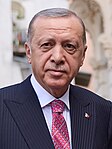| ||||||||||||||||||||||||||||||||||||||||||||||||||||||||||||||||||||||||||||||||||||||||||||||||||||||||||||||||||||||||||||||||||
All 600 seats in the Grand National Assembly 301 seats needed for a majority | ||||||||||||||||||||||||||||||||||||||||||||||||||||||||||||||||||||||||||||||||||||||||||||||||||||||||||||||||||||||||||||||||||
|---|---|---|---|---|---|---|---|---|---|---|---|---|---|---|---|---|---|---|---|---|---|---|---|---|---|---|---|---|---|---|---|---|---|---|---|---|---|---|---|---|---|---|---|---|---|---|---|---|---|---|---|---|---|---|---|---|---|---|---|---|---|---|---|---|---|---|---|---|---|---|---|---|---|---|---|---|---|---|---|---|---|---|---|---|---|---|---|---|---|---|---|---|---|---|---|---|---|---|---|---|---|---|---|---|---|---|---|---|---|---|---|---|---|---|---|---|---|---|---|---|---|---|---|---|---|---|---|---|---|---|
| Turnout | 87.05% ( | |||||||||||||||||||||||||||||||||||||||||||||||||||||||||||||||||||||||||||||||||||||||||||||||||||||||||||||||||||||||||||||||||
| ||||||||||||||||||||||||||||||||||||||||||||||||||||||||||||||||||||||||||||||||||||||||||||||||||||||||||||||||||||||||||||||||||
| ||||||||||||||||||||||||||||||||||||||||||||||||||||||||||||||||||||||||||||||||||||||||||||||||||||||||||||||||||||||||||||||||||
Parliamentary elections were held in Turkey on 14 May 2023, alongside presidential elections, to elect all 600 members of the Grand National Assembly. The incoming members formed the 28th Parliament of Turkey. The elections had originally been scheduled to take place on June 18, but the government moved them forward by a month to avoid coinciding with the university exams, the Hajj pilgrimage and the start of the summer holidays.[1] Prior to the election, the electoral threshold for a party to enter parliament was lowered from 10% to 7% by the ruling party.[2]
The elections were contested by a total of 24 political parties. Some parties decided to participate in the elections as part of an electoral alliance, many of which were formed for the previous 2018 election and had been expanded since. The governing Justice and Development Party (AKP) of incumbent President Recep Tayyip Erdoğan lead the People's Alliance, which also included the Nationalist Movement Party (MHP), the Great Union Party (BBP) and the New Welfare Party (YRP). The largest opposition alliance was headed by the main opposition Republican People's Party (CHP) and included five other parties. These included the Good Party (İYİ), the Felicity Party (SP), the Democrat Party (DP) and two other parties headed by former senior AKP politicians, namely the Democracy and Progress Party (DEVA) of former economy minister Ali Babacan and the Future Party (GP) of former Prime Minister Ahmet Davutoğlu.[citation needed] The pro-Kurdish Peoples' Democratic Party (HDP) opted to run on the lists of the Party of Greens and the Left Future (YSGP) in light of a potential closure case. The YSGP itself headed the left-wing Labour and Freedom Alliance along with the Workers' Party of Turkey (TİP). Two smaller alliances, the Ancestral Alliance of presidential candidate Sinan Oğan and the Union of Socialist Forces, also participated in the elections for the first time.[3]
The People's Alliance retained its majority in the parliament with 323 MPs. The AKP, led by incumbent president Erdoğan, won the highest percentage of the vote with 36%, though it suffered its worst result since 2002. MHP, the second largest party of the People's Alliance, outperformed expectations and won 10.1% of the votes. The alliance overall won just under 50% of the vote. The Nation Alliance only marginally improved on its 2018 vote, winning a combined 34% and 212 MPs. The Labour and Freedom Alliance suffered a decline in their vote, winning just over 10% and 66 seats. No other electoral alliance won seats. The election resulted in seven parties entering the parliament, which is a record in Turkish politics.[citation needed]
Many smaller parties ran on the lists of larger ones to avoid splitting the vote. Prior to the election, the CHP caused controversy by fielding 77 DEVA, Felicity Party, Future Party, and Democrat Party candidates on its own lists, of which 39 (14 DEVA, 10 Felicity, 10 Future, 3 Democrats, 1 IYI, and 1 Party for Change in Turkey) were elected — a significantly higher proportion than these parties' national share of support.[4] These included former AKP ministers such as Sadullah Ergin (running as a DEVA candidate), who was widely criticised for his role as Justice Minister in the Ergenekon conspiracy against the Turkish Armed Forces. The AKP, meanwhile, was criticised for fielding members of the Free Cause Party (HÜDA PAR), a party known for its ties to the Kurdish Hezbollah, as candidates.[citation needed]
Cite error: There are <ref group=lower-alpha> tags or {{efn}} templates on this page, but the references will not show without a {{reflist|group=lower-alpha}} template or {{notelist}} template (see the help page).
- ^ "Erdogan calls Turkish elections for May 14, three months after quake disaster". Reuters. 10 March 2023. Retrieved 19 May 2023.
- ^ "Turkey reduces election threshold to 7 percent - Türkiye News". Hürriyet Daily News. 1 April 2022. Retrieved 19 May 2023.
- ^ Gadzhiev, Amur (19 April 2023). "Turkey on the Eve of Presidential and Parliamentary Elections: Balance of Political Forces in the Country". russiancouncil.ru. Retrieved 19 May 2023.
- ^ "Millet İttifakı partilerinden 39 aday, CHP listesinden Meclis'e girdi". www.ntv.com.tr (in Turkish). Retrieved 7 October 2023.








